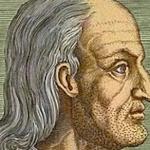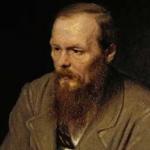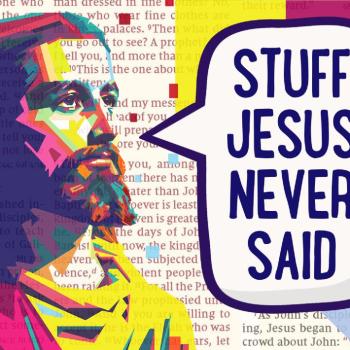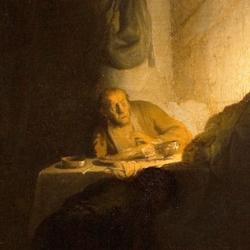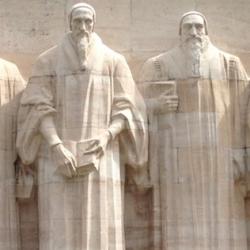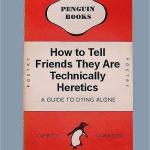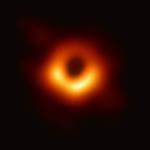One of the key threads of Pecknold’s story (in Christianity and Politics) is the “migration” of the Christian notion of the mystical body. Henri de Lubac first demonstrated that between patristic period and the high middle ages, the term had moved from the Eucharist to the church itself. Early Christians believed that through Christ’s gift of his Eucharistic corpus mysticum, the church was formed into the true body of Christ.
After Berengar’s Eucharistic heresy, no one dared call the Eucharist merely “mystical”; the Eucharist became the corpus verum, while the church itself came to be seen as the “mystical” body. The shift seems trivial, but de Lubac rightly discerned tectonic plates moving under the surface.
For one thing, “mystical” and “real” were increasingly opposed to each other. Something was either mystical or real, either sign or thing, never both together. We are still living with the consequences of this shift.
More seriously, the shift indicates that the view that the church was constituted by Christ through His offered body was gradually overwhelmed by the view that the church itself made the Eucharist. Christ’s power was made secondary, the church’s elevated to primacy. Allegiance to Jesus was subordinated to allegiance to the mystical body of the church. Participation in the Risen Christ was put a notch down, participation in the institutions of the church a notch up.
Sheldon Wolin used de Lubac’s work in his study of Western political thought, and noticed that the migration of the mystical continued after the fourteenth century. From the Eucharist to the church itself, “mysticism” eventually attached itself to the rising nation states that began to dominate Western politics after the Reformation.
Pecknold thus claims that Machiavelli and Hobbes both borrowed distorted late medieval concepts to formulate the notion that the nation itself was a “mystical body” that bound people together in loyalty to flag, land, and national ideals. Asked to identify themselves, medievals would have said “I am a Christian.” We moderns say “I am American, I am Irish, I am Brazilian.” Even Christians often see themselves as first and foremost members of that mystical body.

